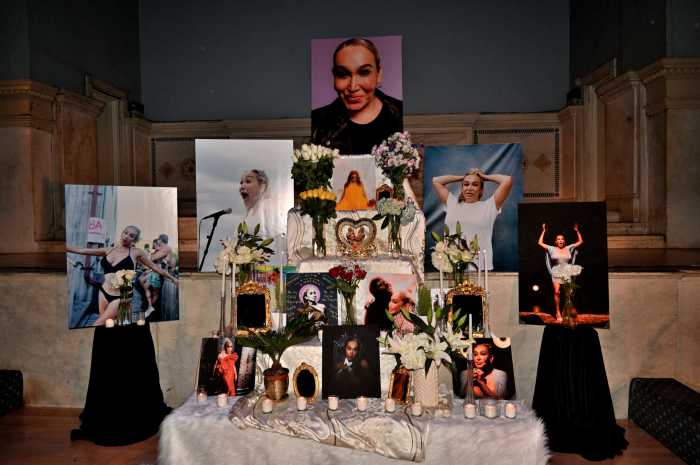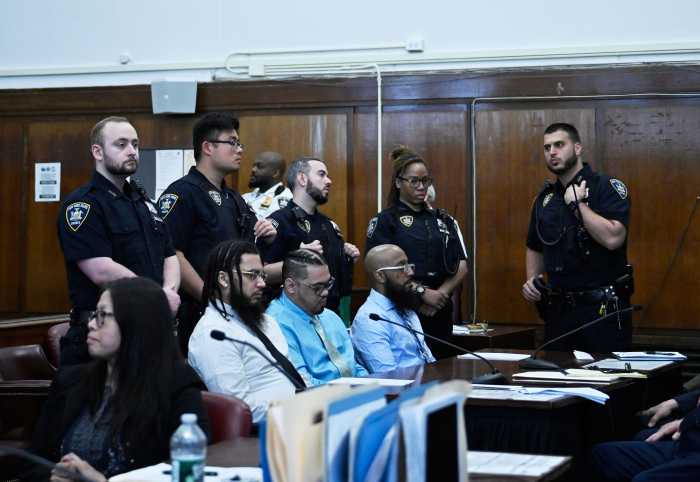Luis Tabales first appeared in Queens Family Court in April of 2010. Then 15, he had been arrested for weapons possession, criminal mischief, and reckless endangerment. He was arrested for attempted burglary 12 days later.
John M. Hunt, the Family Court judge who heard the case, found that he was a juvenile delinquent. The city’s Department of Probation recommended that Tabales be placed in the Juvenile Justice Initiative (JJI), an alternative-to-detention program run by the city’s Administration for Children’s Services (ACS) for youths older than seven and less than 16.
In JJI starting that June, Tabales agreed to abide by a curfew, attend school, stop using marijuana and other drugs, and not get arrested again. The Tabales family received multisystemic therapy (MST) from a psychologist at the Child Center of New York (CCNY), a private agency with an ACS contract to perform the therapy with some of the roughly 250 juveniles who are enrolled in JJI every year. It did not work.
Tabales was arrested for fare beating in September 2010. He tested positive for marijuana six times between July 31 and November 3. Tabales missed 19 therapy appointments. His mother missed others, and she resisted enforcing elements of the therapy. He frequently skipped school and regularly violated his curfew.
Eventually fearing for her son’s safety, Tabales’ mother wanted Probation to issue a violation petition to Hunt so he would be detained. CCNY talked her out of it, but the agency eventually closed his case on December 13.
Terminating a case is the “most severe sanction available” to ACS and CCNY, Hunt wrote in a 98-page decision he issued on March 14 of this year. Probation, the city’s Law Department, and Tabales’ attorney were informed, but Probation wanted to place Tabales in an inpatient drug program and did not cite him for violating the terms of his agreement.
In 2011, on January 9, Tabales was arrested in the Bronx and indicted on 11 charges, including robbery and assault, which are violent felonies. On January 25, he was arrested and charged with attempted robbery and assault in Brooklyn.
Last year, on March 12, Tabales, now 17, and five other young men were accused of using anti-gay slurs as they allegedly beat Anthony Collao to death on a Queens street. Their charges include murder, manslaughter, gang assault, and robbery, with some charged as hate crimes. Collao, 18, was straight.
Two days later and nine months after Tabales entered JJI, Probation delivered a violation petition to Hunt. It sent an amended petition to the judge on April 29 of last year.
“Luis T. self-destructed amid a perfect storm of good intentions, boundless optimism, and the city’s ambitious policy of utilizing community-based alternative to placement programs,” Hunt wrote. “It is clear to this court that the therapeutic interventions provided to Mr. T. in this case failed miserably.”
It may be a measure of Hunt’s anger about this case that he adhered to the legal requirement to not identify Tabales, but his footnotes cite press reports on the Collao murder making clear who he is referring to.
The failure was not Probation’s alone, Hunt wrote. The CCNY psychologist filed monthly reports with Probation that “under-reported the frequency and nature of the violations of the conditions of probation,” and that psychologist, his supervisor, and a psychologist who was consulting on the case “merely treated the multiple violations of probation as behavioral issues to address through further expansion of the MST services being offered,” Hunt wrote. The judge called MST a “nebulous therapeutic program.”
In 2008, Hunt had another juvenile — Ronald B. — who violated his 2007 probation requirements. He was placed in JJI. In May of 2009, probation informed Hunt that Ronald B., who had since turned 17, had been arrested for robbery three months earlier and pleaded guilty a month before. Ronald B. was by then serving one-to-three years in an upstate prison.
Though the case was closed, “those administering the JJI/ MST program are encouraged to thoroughly review the circumstances of this case so that structural and programmatic problems can be identified and changes implemented where necessary,” Hunt wrote in a 2009 decision on the case.
The Bloomberg administration has long wanted to reform the city’s juvenile justice programs. New York State holds many juvenile delinquents, and the city pays for their detention in upstate facilities that have been harshly criticized by former judges, advocates, and some in government as ineffective and expensive.
In the state budget for the current fiscal year, Governor Andrew Cuomo included the Close to Home Initiative, a program that allows New York City to house and counsel all but the most serious juvenile delinquents in the city.
“We can do far better at a fraction of the cost,” Mayor Michael Bloomberg told a joint committee of the State Legislature in January. “By keeping the kids more closely connected to their families, their schools, their churches, and communities, we’re confident that we can improve public safety, save money, and help more kids stay out of trouble and help them make new starts in their still young lives.”
In an affirmation filed with Hunt, ACS said it is collecting data on the performance of JJI and MST when enrollees are participating and after they leave the program. It did not share that data with Gay City News, so it is unclear if the Tabales and Ronald B. cases are aberrations.
ACS did not comment on the Tabales case.
In a statement, Probation said, “Advancing public safety is the [department’s] primary concern, and we consider it a tragedy whenever a citizen or client is the victim of violence. Probation is working with prosecutors to standardize and expedite the process by which we recommend juvenile clients for revocation. We remain committed to the practice of referring clients to high-quality programs that can provide the services and resources they need to get back on track while continuing to actively supervise their cases.”
In a statement, CCNY also expressed regret for Collao’s death and added, “We fulfilled our responsibilities by filing monthly reports to the Department of Probation, in which we explicitly recounted Luis’s behaviors… [W]e informed the Department of Probation that we could no longer work with Luis because of the family’s lack of engagement. This termination happened months before the horrible incident took place. The Department of Probation conceded in court that it should have reported him back to the court for violation of probation much sooner. All of this is part of the court record.”
Hunt concluded that the Tabales “case was treated differently from those cases where a juvenile probationer has not been ordered to participate in the JJI/ MST program, and his case should serve as a red flag amidst the current rush to replace institutional placements with community-based alternatives.”

































